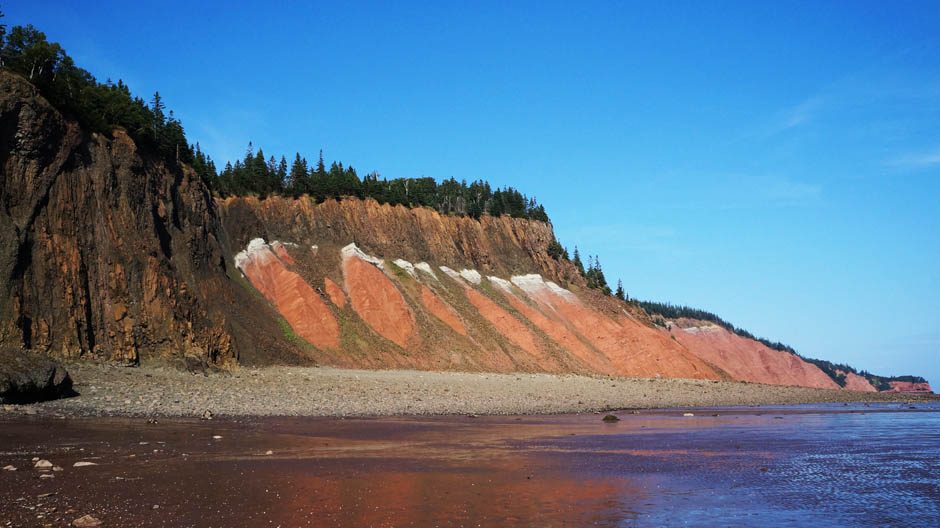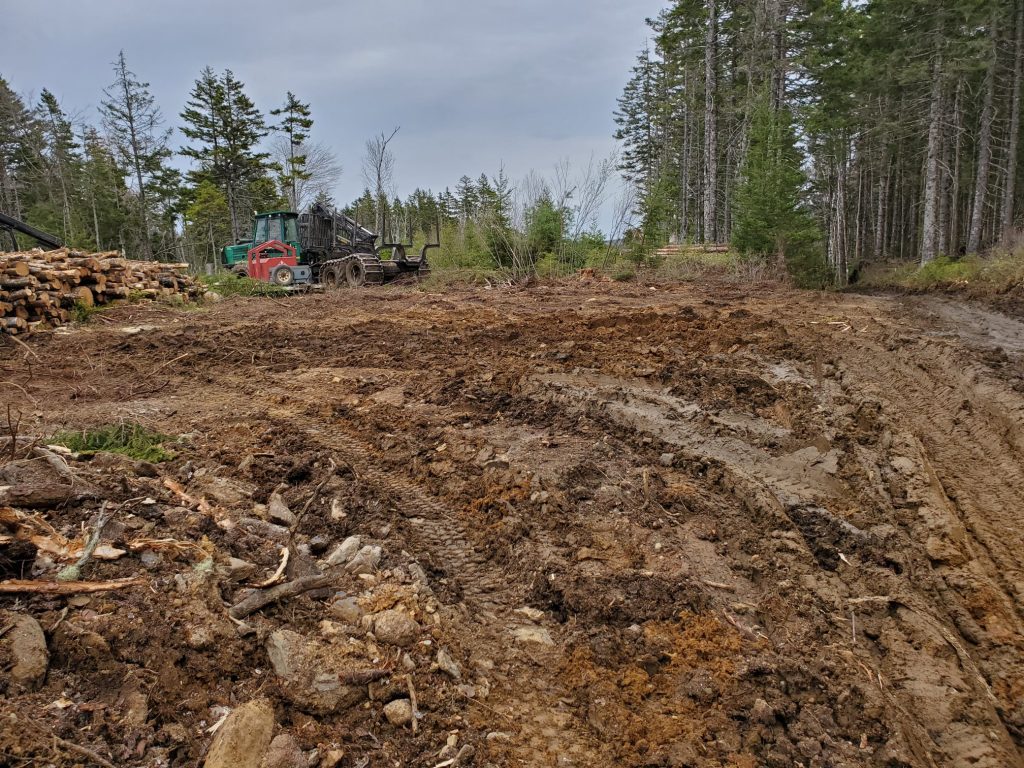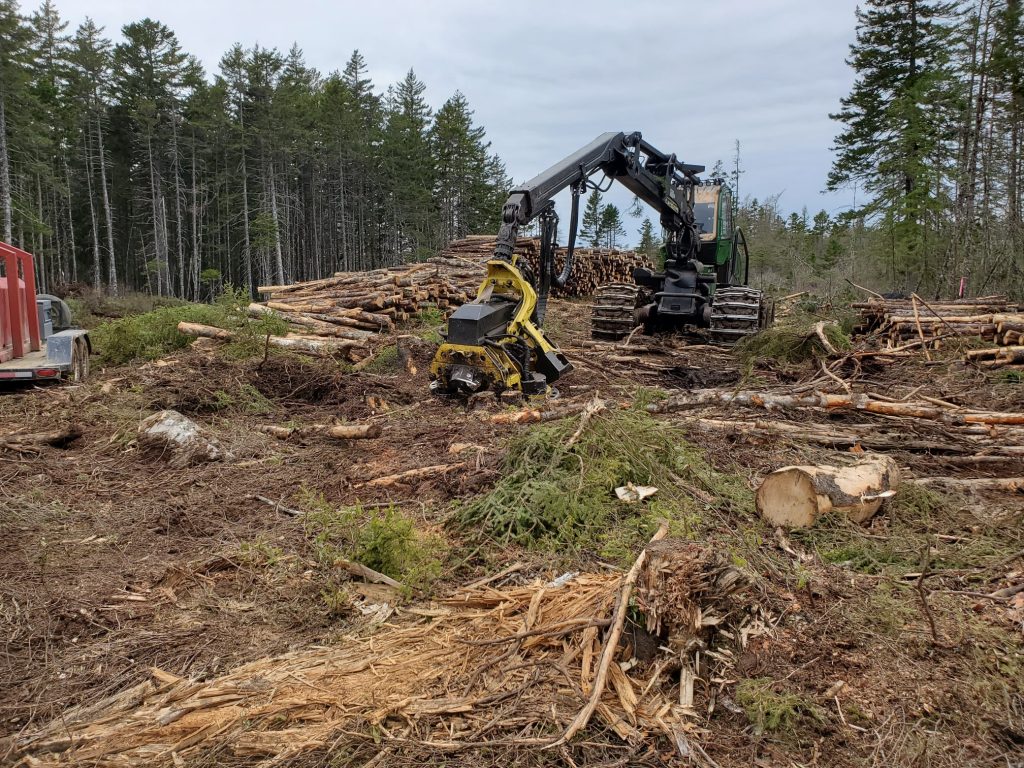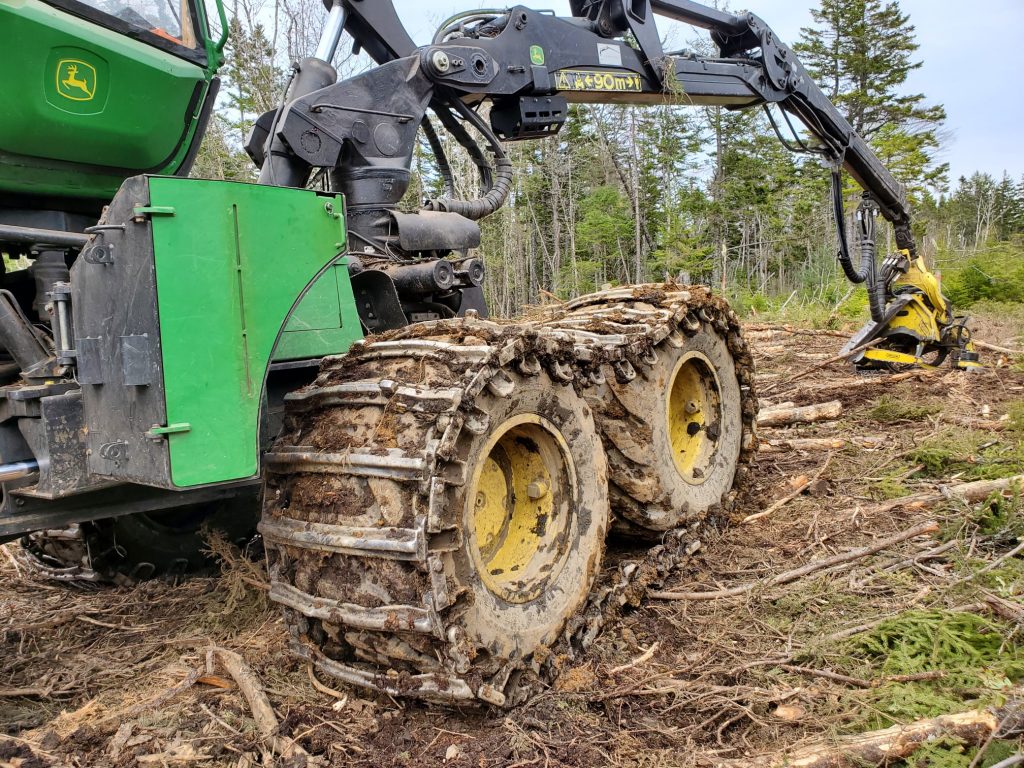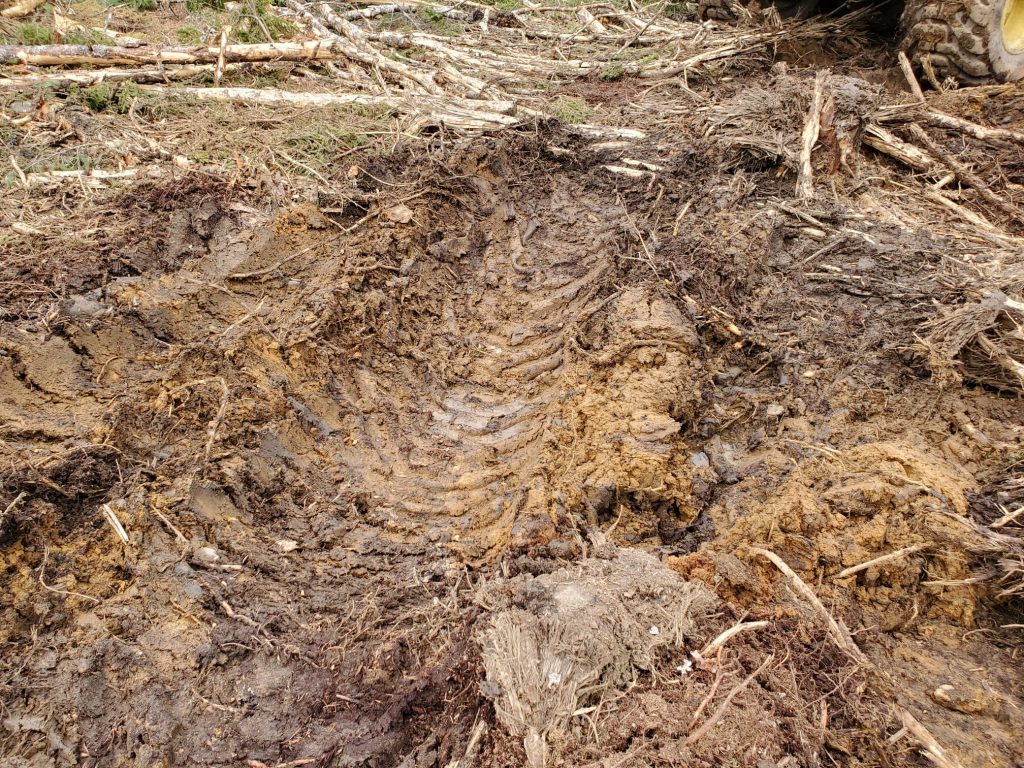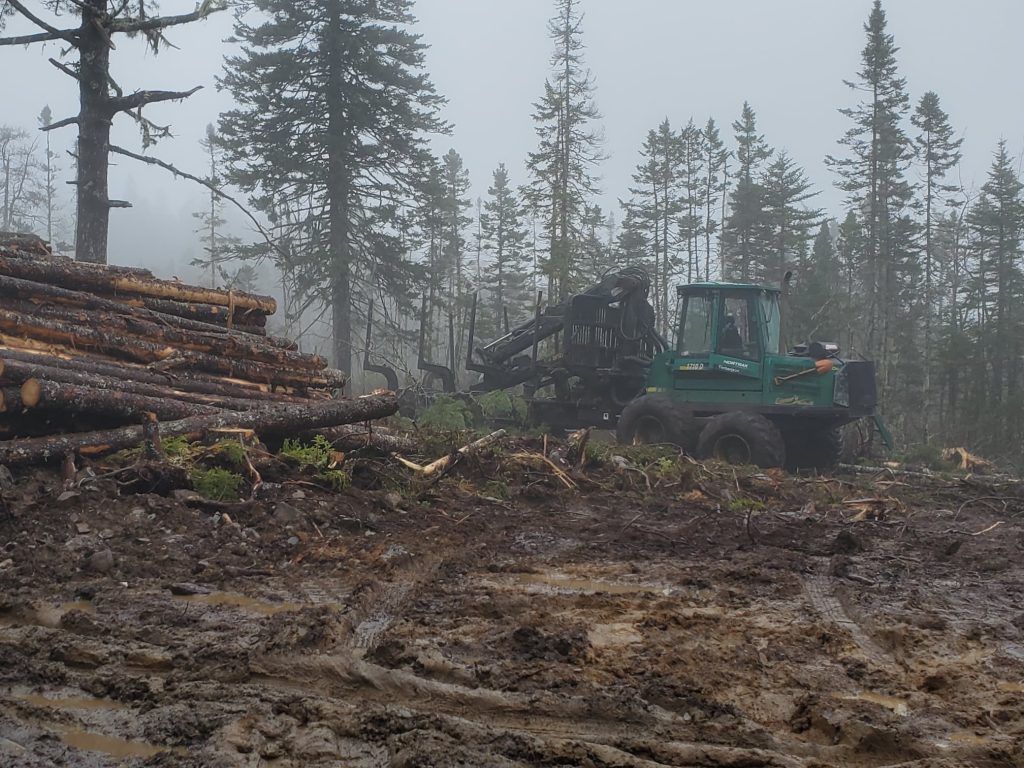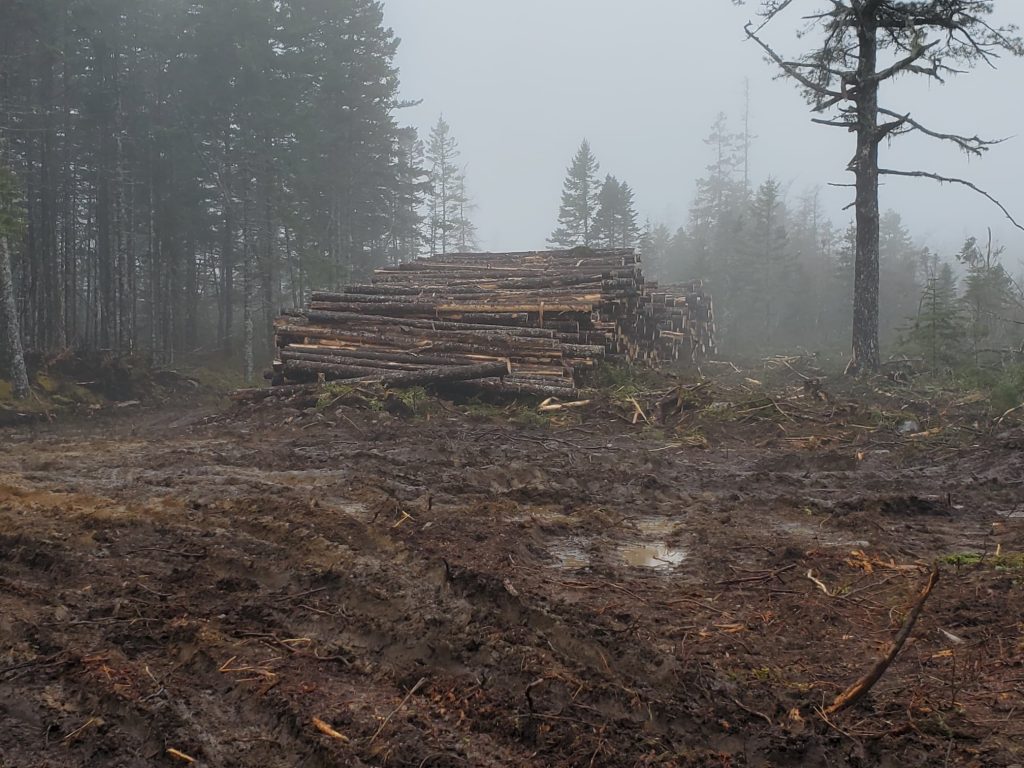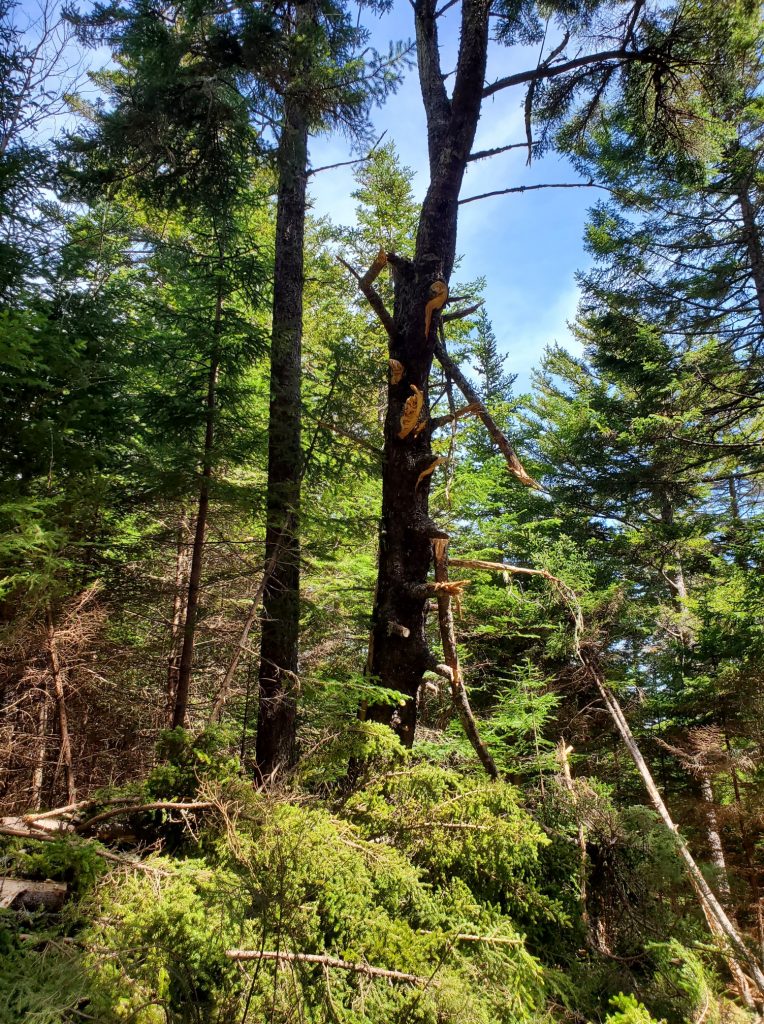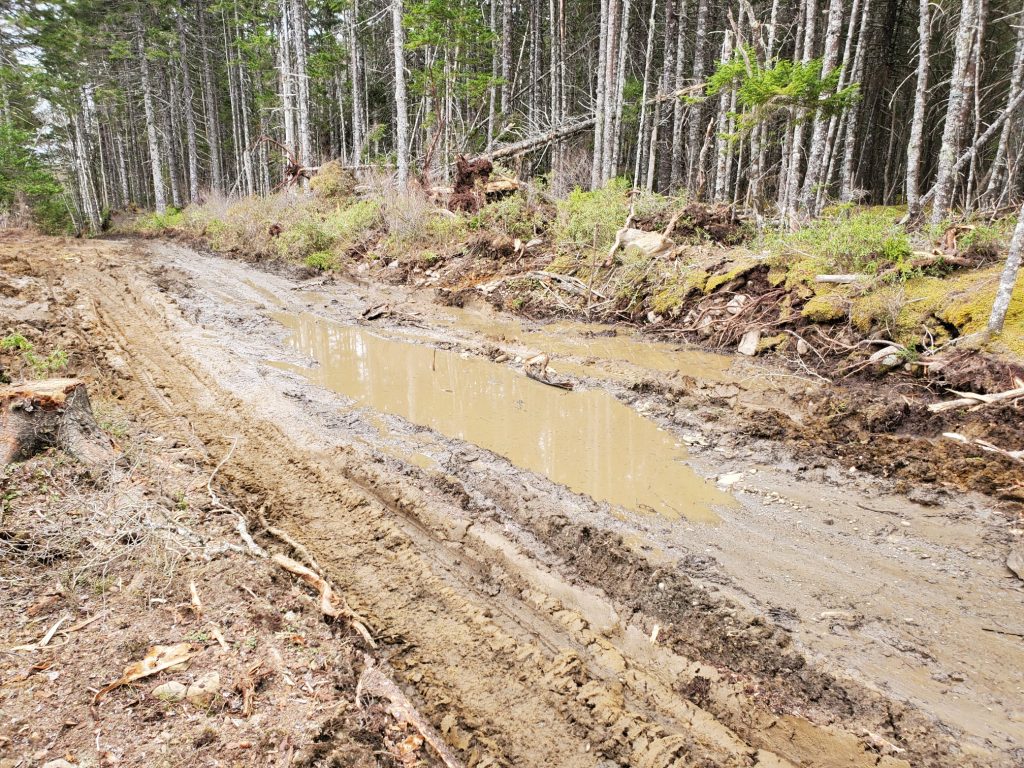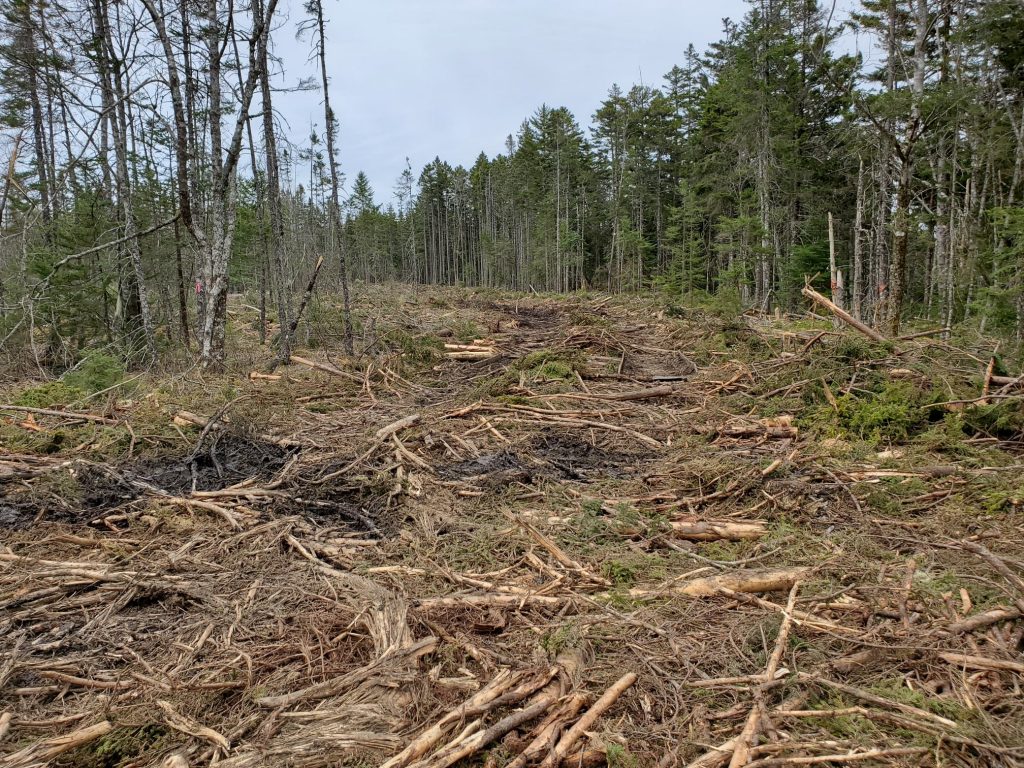At least from an ecological perspective they are… ‘Comment from Forest Nova Scotia and Nova Scotia Lands and Forestry invited.
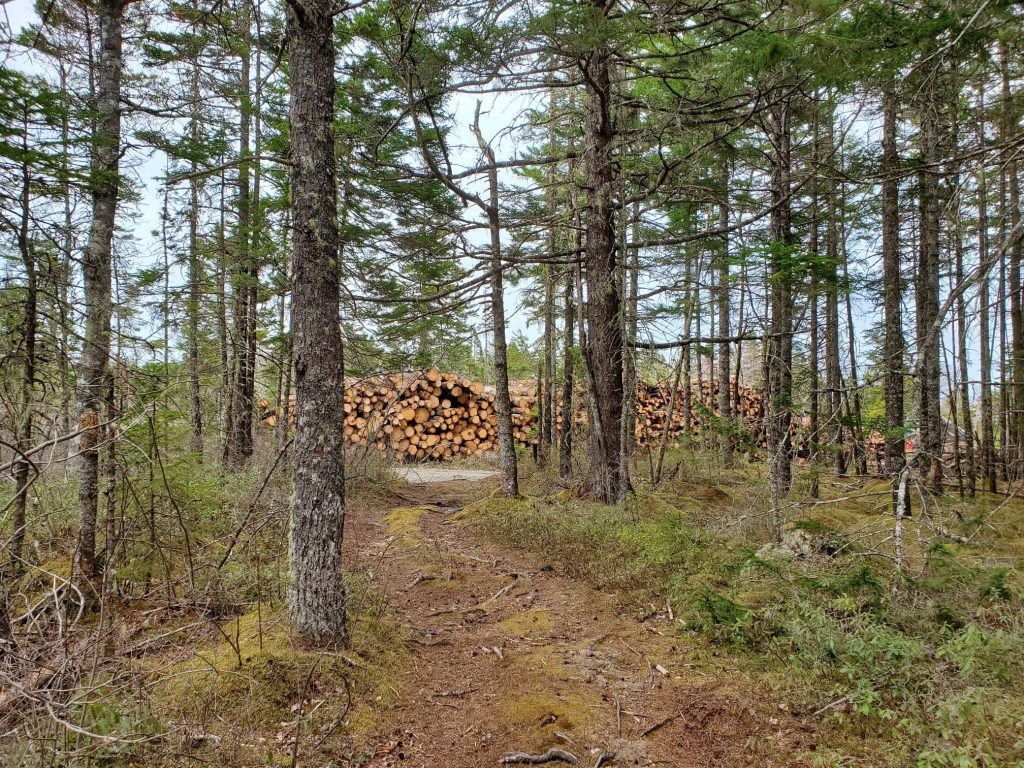
Log pile view from intact forest. Note moss, seedling, shrub and herb ground cover. Below-ground there would be a mycorrhizal (fungal) network connecting the various plants.
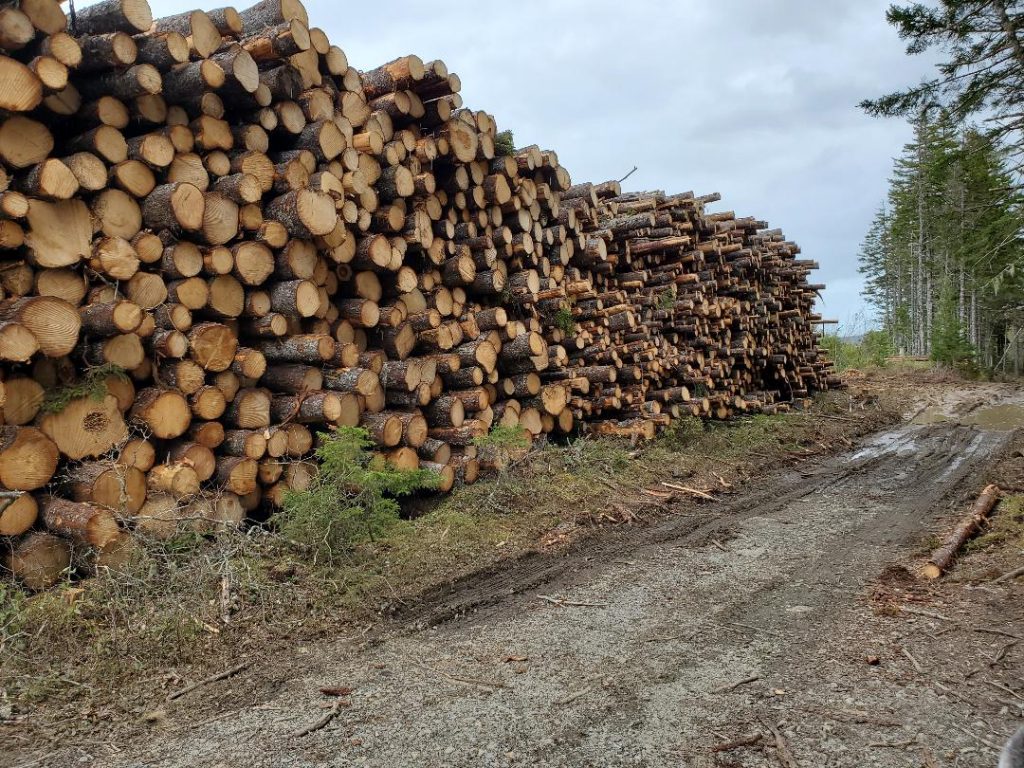
Will the smaller logs be burnt? Will the site be limed afterwards to compensate for loss of a critical nutrient (calcium)?

This huge machine can grab a tree and cut it with its chain saw in seconds, apparently with little care for the ground vegetation and mycorrhizal networks around it
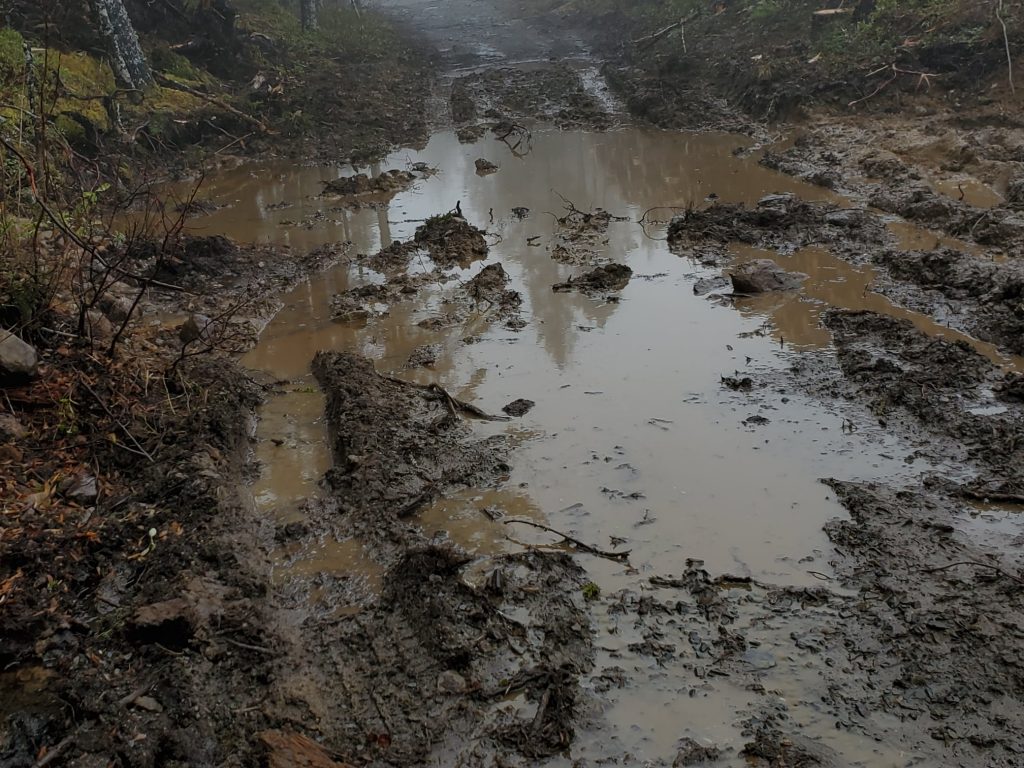
Will forest regrow here? Is it Deforestation? If it regrows, will the regrowth be slower and capture less carbon than over the previous rotation?
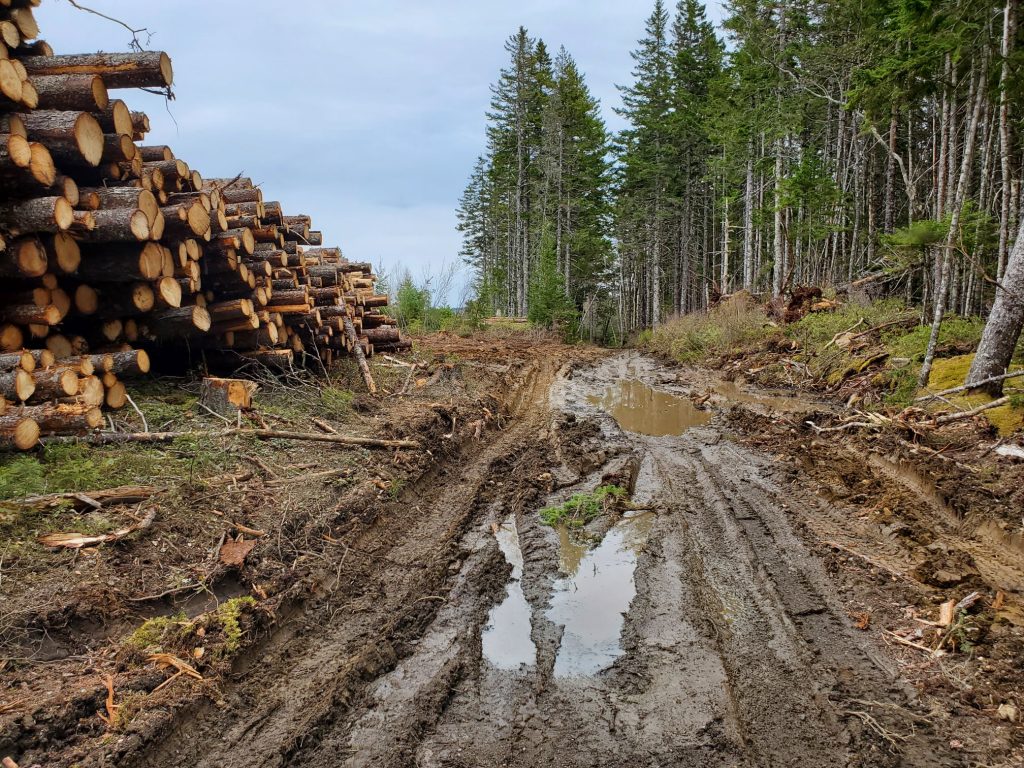
At one time, and when we had far less scientific understand of forests, most logging was conducted when the ground is frozen; not today. Why? How can we call this “sustainable”?
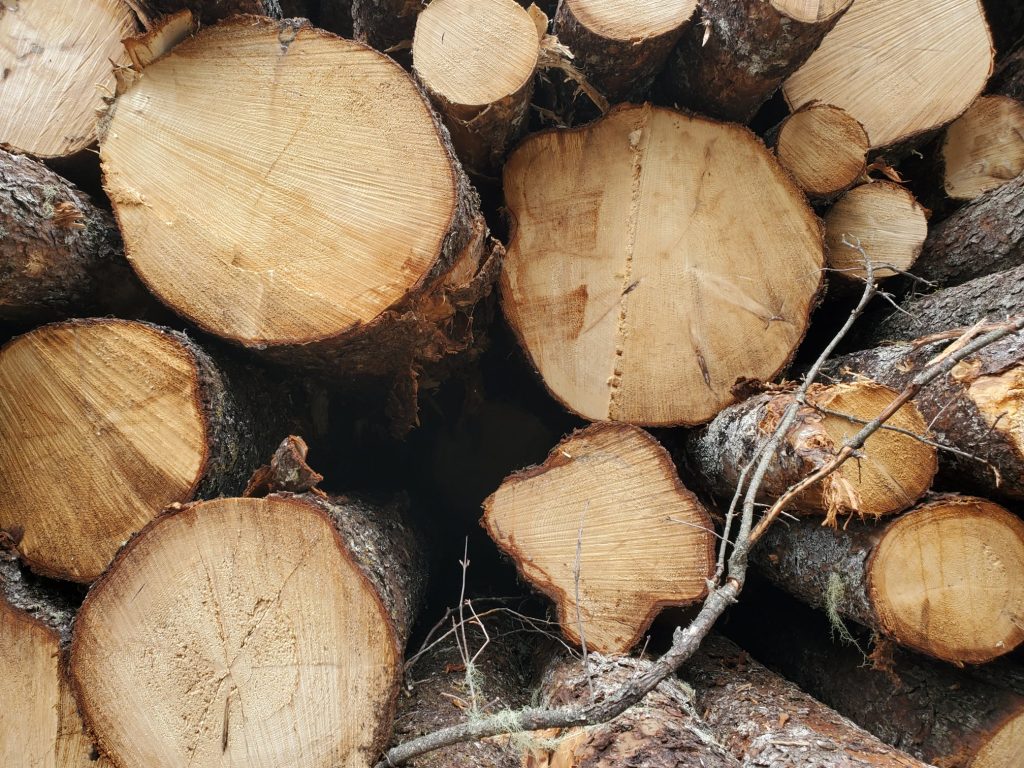
Big logs are 3.5 hand spans across – 40+ cm. Will this forest see another 80 or so years before it is harvested so the big trees are replaces, or be harvested on a shorter rotation with 10-12″ logs the max?
The sad part: one can see a lot of this on the Nova Scotia landscape, and a lot worse, even on Crown lands.
Can’t we do better than this in 2021? ‘Comment from Forest Nova Scotia and Nova Scotia Lands and Forestry invited & welcomed.
“The hand falling, horse logging, and river drives left the forests capable of vibrant, renewed life. Clearly much had changed from what I knew [as a child growing up] to what my industry and I were doing now.” – Suzanne Simmard in Finding the Mother Tree
